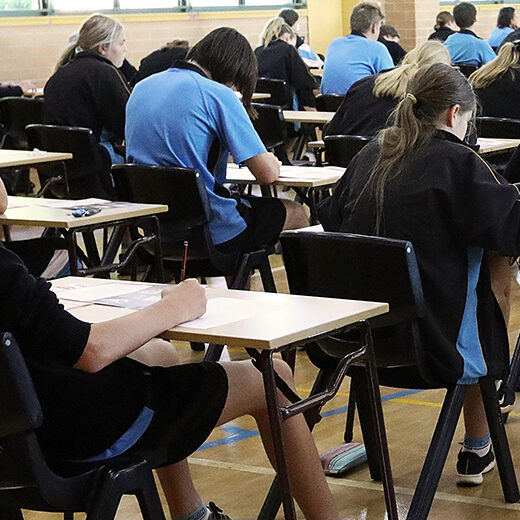Closing the attainment gap: are we fighting a losing battle?
Disadvantaged young people are leaving secondary school over 18 months behind their non-disadvantaged peers – and this gap isn’t getting any smaller. In fact, the attainment gap could be on the brink of widening.
As a charity that seeks to help young people from all backgrounds to reach their full potential, for us, this is more than just a headline. This is a major stumbling block in getting the youngest generation more socially mobile, and stopping them being a product of the situation they are born in to.
This worrying data comes from the latest Education Policy Institute (EPI) annual report, which shows that the achievement gap between advantaged and disadvantaged pupils is now virtually at a standstill.
Their 2017 report showed that the gap was closing at a very slow rate, only narrowing by three months of learning between 2007 and 2016. Now in 2019, the gap has stopped closing altogether. Most alarming of all, for persistently disadvantaged pupils – those eligible for free school meals for at least 80% of their time in school – the gap widened between 2007 and 2016, and has continued to widen to date. The very worst off are now almost two years behind all other pupils by the time they finish their GCSEs.
The very worst off are now almost two years behind all other pupils by the time they finish their GCSEs.
What causes this gap and what are the consequences?
The attainment gap isn’t just about whether you go to a grammar school or your local comprehensive. There are a number of factors, beginning at childbirth, which can accumulate over time to continue to negatively impact on all aspects of a disadvantaged young person’s life and cause them to fall behind their peers.
The EPI has produced an infographic to show how some of these factors drive the widening of the attainment gap and we’ve recently blogged about some of these issues too. Unsurprisingly, the impact of these factors on educational attainment doesn’t just stop at GCSE scores, it transmits into later life outcomes.
According to the 2019 EPI report, post-16 routes are increasingly segregated by socio-economic status. Disadvantaged pupils are disproportionately over-represented in further education and under-represented in sixth-form and apprenticeships. Young people from disadvantaged backgrounds are less likely to continue into post-compulsory education; they have lower average earnings, poorer health and more likely to become involved with crime than their more affluent peers (EPI 2017).
In 2017, the EPI predicted that we would lose three generations before equality of outcomes is realised through our education system. In 2019, their data suggests that, given the current rate of closure of the gap over the last five years, it will take 560 years to close the gap and we could even be looking at a turning point where the gap starts to widen.
Young people from disadvantaged backgrounds have lower average earnings, poorer health and are more likely to become involved with crime than their more affluent peers.
What needs to change?
We’re certainly backing the EPI in their call for the Government to review its policies and resources in secondary and post-16 education where the widening of the attainment gap is felt most sharply. Ultimately, this is a huge waste of human capital and acts to undo much of the hard work and progress that has been made, for example through the use of the Pupil Premium.
Earlier this year, the Social Mobility Commission State of the Nation 2018-19 report delivered a similar message. The report called for the Government to reconsider how Pupil Premium funding is targeted in order to be more beneficial to those with long-term disadvantage. The Commission also warned again the lack of attention to FE and suggested providing significant extra funding for 16-19 year olds, alongside a new student premium for disadvantaged young people in post-16 education.
But we know it’s not just politicians that need to act. It needs schools, universities, and employers to ensure that everyone has access to equal opportunities. Young people need choice to shape their lives; they need to be able to make informed decisions and feel empowered to go in the directions they want to – and we all have a part to play in enabling the rest of their lives.
Further Reading

A focus on ACEs - Adverse Childhood Expe...
11 April 19
What are the impacts of ACEs and how can we mitigate them?

Top 5 employability skills that Outward ...
7 March 18
Top 5 key employability skills St Machar Academy pupils learn at Outward Bound.

Do we need exams?
11 June 19
As we come to the end of another exam period we ask: are exams really needed?